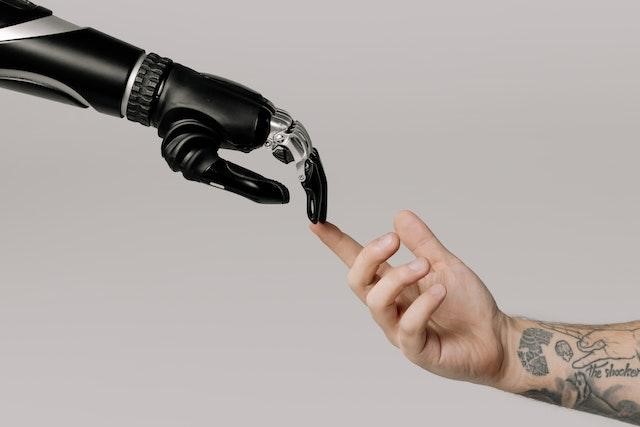
Artificial intelligence (AI) has emerged as a transformative force across numerous industries, revolutionizing the way we work and interact with technology. While AI brings about unprecedented advancements and opportunities, its rapid growth also raises concerns about the impact on jobs in Jackson MS.
If you are concerned about how AI is going to impact your job, you’re not alone. Since AI is the future, it’s important to embrace it rather than fear it. To do this, you’ll need to understand how AI is affecting jobs and the potential implications to be aware of.
Automation and Job Displacement
One significant effect of AI is the automation of tasks previously performed by humans. AI-powered systems and robots can now handle repetitive, mundane, or labor-intensive tasks with greater speed and accuracy. While this increases operational efficiency, it can lead to job displacement in certain sectors.
In fact, one report says that AI may replace 300 million full-time jobs. The jobs most at risk are those that involve routine and predictable tasks, such as assembly line work or data entry. But it’s not all bad news. AI is also expected to create new jobs. For now, the goal is to learn how to work with AI instead of against it. This adaptability will be increasingly valuable to employers.
Skill Shift and Job Creation
Although AI may automate some jobs, it also creates new opportunities and shifts the demand for certain skills. As AI takes over routine tasks, there is a growing need for individuals with skills in areas such as data analysis, machine learning, programming, and AI development.
New job roles are emerging to support and optimize AI systems, such as AI trainers, data scientists and algorithm specialists. It’s essential for individuals to acquire and develop skills that complement and align with AI technologies to stay relevant in the job market.
Augmentation and Collaborative AI
Rather than completely replacing humans, AI can also augment human capabilities and enable collaboration between humans and machines. AI-powered tools and platforms can enhance productivity, decision-making and creativity by providing insights, recommendations, and assistance.
Jobs that require complex problem-solving, critical thinking, creativity and emotional intelligence are less likely to be fully automated. Instead, AI can support human workers, allowing them to focus on higher-value tasks and innovation.
Adaptation and Lifelong Learning
The rise of AI underscores the importance of continuous learning and adaptability in the workforce. As job roles evolve and new technologies emerge, individuals need to embrace lifelong learning to acquire new skills, stay updated with industry trends and adapt to changing job requirements. Upskilling and reskilling programs can help workers transition into AI-driven roles.
Ethical Considerations and New Roles
The widespread use of AI raises ethical concerns that need careful consideration. Issues such as bias in algorithms, privacy, cybersecurity, and the impact on human decision-making require thoughtful regulation and ethical frameworks. Consequently, new job roles, such as AI ethicists and AI policy experts, are emerging to address these concerns and ensure responsible AI implementation.
Building Innovative Workplaces with AI Technology
There’s no question that AI is significantly transforming jobs in Jackson MS, bringing both challenges and opportunities. While certain jobs may be at risk of automation, AI also creates new roles, augments human capabilities, and drives economic growth. Therefore, it’s time to embrace this technology instead of fearing it.
To discuss your future career path and where it can lead you, contact Capitol Staffing today. Our recruiters understand how AI is impacting the job market and what job seekers can do to prepare themselves for the future.
